IEP’s empirically derived Positive Peace Framework involves the use of a systems-based approach to better understand the creation and maintenance of peaceful societies. The Positive Peace Framework is made up of 8 pillars of Positive Peace: Well-functioning Government, Sound Business Environment, Equitable Distribution of Resources, Acceptance of the Rights of Others, Good Relations with Neighbours, Free Flow of Information, High Levels of Human Capital, and Low Levels of Corruption.
The IEP Ambassador Program aims to introduce participants to the Positive Peace Framework. This framework equips Ambassadors with an awareness of the ways in which local, community-led action can be used to move towards more sustainable, peaceful societies.
The following article explores the different ways IEP Ambassadors have created a link between Positive Peace and their peace projects, bringing attention to the variety of ways to build peace. Although each project is listed in connection to a specific Pillar of Peace, by no means is that the only relevant pillar due to their interconnected nature. As each pillar is interdependent of the others, it is expected projects will correlate with multiple aspects of the Positive Peace framework. Nevertheless, the examples below relate strongly to a specific Pillars of Peace.
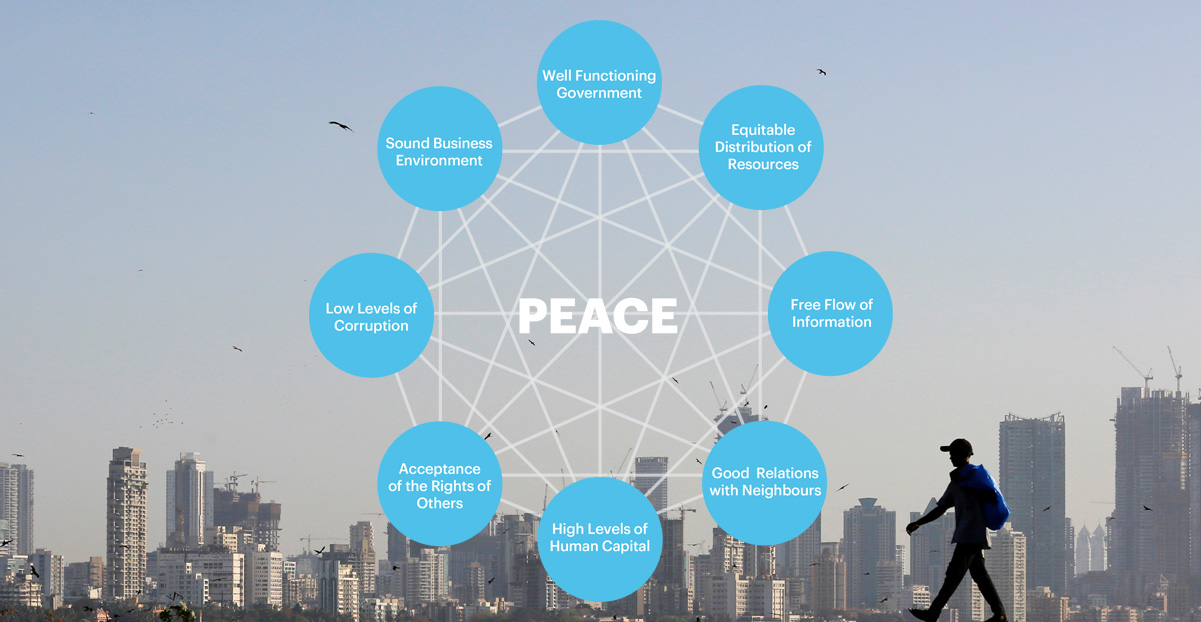
Well-Functioning Government
As part of her master’s studies, Rotary Peace Fellow (RPF) Diana Carolina researched the relationship between health and peace, acknowledging the armed conflict Colombia has faced. Her leading question was “How can the Colombian government integrate the Positive Peace framework into the National Rural Health Plan to build sustained peace in Colombia?”, inspired by the idea of health as a bridge for peace. In her research Diana developed strategies for the government to implement that can improve healthcare services and programs, while also being a tool for peacebuilding in rural areas which have been or are currently affected by conflict. The proposed strategies leveraged peacebuilding through a cross-sector and multilevel approach which aimed to unite government, communities, healthcare professionals and institutions to improve the delivery of services to rural populations, improve the well-being of healthcare professionals and increase the government’s efficiency.
Sound Business Environment
The All-India Management Association (AIMA) is the apex body for management in India, with over 38,000 members and close to 6,000 corporate and institutional partners through 67 affiliated Local Management Associations. As Chairman of the Mumbai Chapter of AIMA YLC, Vidyadhar Prabhudesai conducted a presentation describing the Positive Peace Index and its impact on economic value. This presentation explained the conceptual background, economic impact of violence, trends, economic progress and peace aspects of the report to more than 70 chosen leaders from academia, business, art and entrepreneurship at the virtual event. It educated and created awareness about the economic impact of peace among Vidyadhar’s peers, friends and colleagues who are already achieving in their respective fields. His intention was to influence business leaders and reframe their thinking about business practices.
Equitable Distribution of Resources
During the COVID-19 pandemic, Melissa Diamond realised children with developmental disabilities in the communities she served were disproportionately excluded from virtual learning programs. It was difficult for these children to access virtual learning, and parents were unable to connect with schools to understand how to provide educational support to their children during the pandemic. In response, she established the Include2020 initiative. This initiative provided support to these families to alleviate food insecurity, ensure they had access to electricity and help them safety proof their homes for their children. These children were spending more time at home and sometimes displaying new self-injurious or aggressive behaviours caused by changes in routine and communication barriers. She also developed a mobile application that provided in-language, culturally relevant training to parents of primary school-aged children with developmental disabilities. This application helped children to access their education and parents to access knowledge to support their children’s success, in their native languages, where they had previously been unable to.
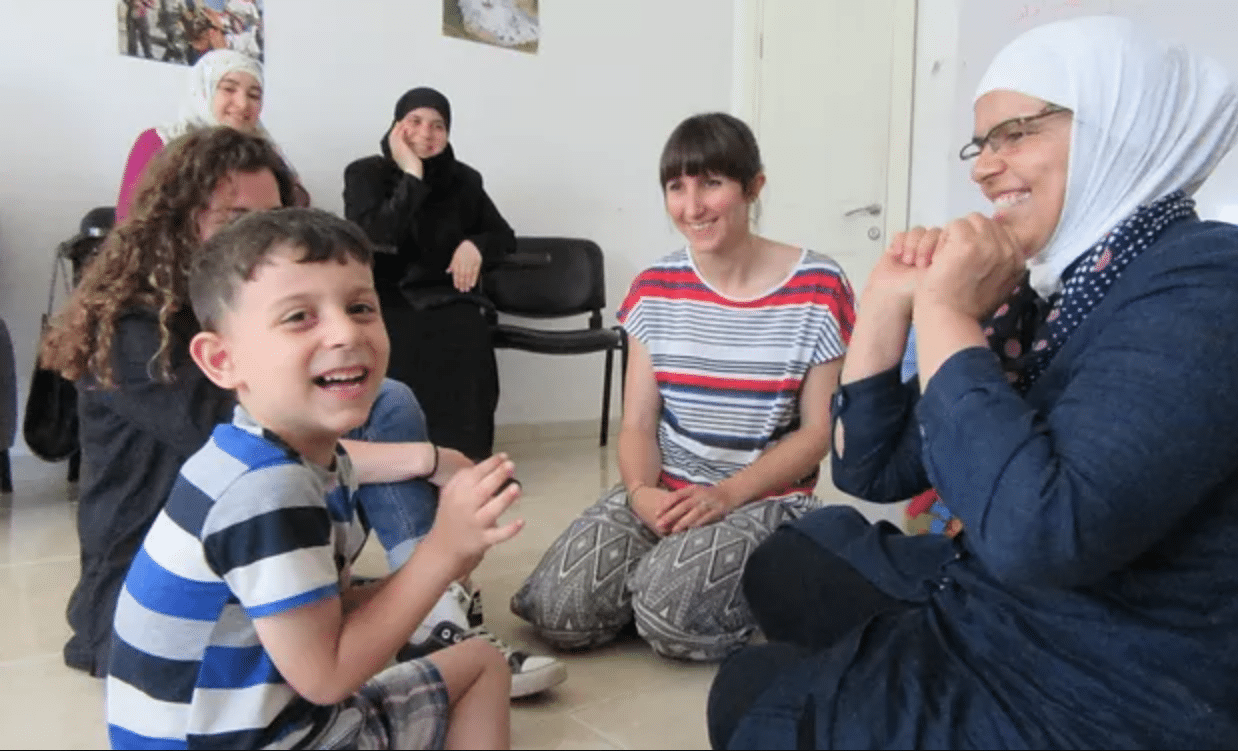
Acceptance of the Rights of Others
Sara Khaled’s project focused on the use of community art installations. Her work points to the way such installations foster positive behavioural change and help to create peace among citizens, such as empowering women to express themselves through creative arts during Lebanon’s civil unrest. A key example was the use of the symbolic refrain “Al Thawra Ontha”, or “the revolution is a woman”, as a common motif in creative demonstration. Lebanon is one of the lowest ranking countries on the World Economic Forum’s Global Gender Gap Report, ranking 132 out of 156 countries in 2021. It is within this context that women have taken to the streets in record numbers to protest historic inequalities, such as poor rates of economic and political participation. By personifying the revolution as a woman through art, the protesters are ensuring that these concerns remain front and centre.
Read more at How Sara Khaled is promoting art as a peacebuilding tool in Beirut, Lebanon

Good Relations with Neighbours
To activate Positive Peace, Yahaya Joseph Janga organised a conversation about reconciliation with and reintegration of former Boko Haram members in Yobe State, Nigeria in April 2022. There have been initiatives for deradicalized ex-combatants to return to their communities and resume a normal lifestyle, but because of their violent past many face challenges being accepted by their community. Yahaya organised this event to brainstorm reintegration initiatives at a community level with relevant stakeholders from various communities, including local government officials, members of state security, traditional and religious leaders, vigilante groups and youth leaders. Stakeholders brainstormed ways to address the prejudice former Boko Haram members are facing, and made commitments that can lead to successful reintegration. Amongst the lessons learned, participants discussed the need for strong dialogue with community members around supporting the reintegration of repentant combatants, as well as women and girls who have escaped Boko Haram captivity – using media and community discussion to create public awareness and stop the stigma.
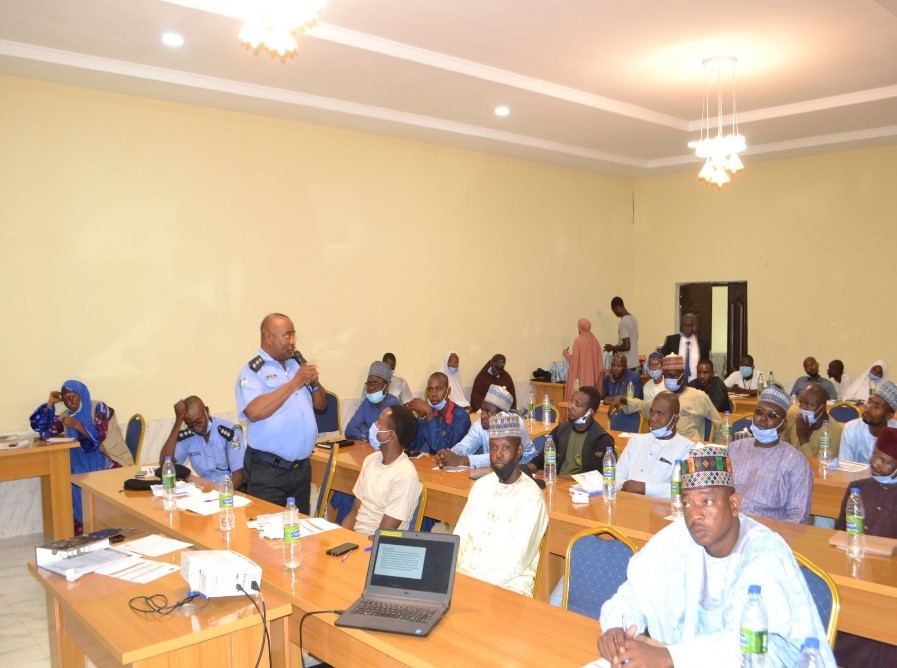
Free Flow of Information
In remote regions of Aklan Province in the Philippines, Internet access can be a real challenge. Connectivity issues have even plagued elections in the area, particularly in the town of Libacao which sits on a mountain range which is barely accessible. More recently, Typhoon Odette has caused sweeping network service outages in Bohol, underlining the fragility of the current Internet infrastructure. To address the problems raised by fragile Internet connectivity, Melrose Lunn set about designing a project to deliver and install Internet boosters in remote communities. Since the initiation of her project in December 2021, Melrose and her team have successfully installed 4G Internet boosters in five towns, including at Rosario in Malinao’s “Clinic in the Cloud” hub. They are currently testing to ensure the success of Internet boosters in two other towns.
Read more at Connecting remote communities in the Philippines
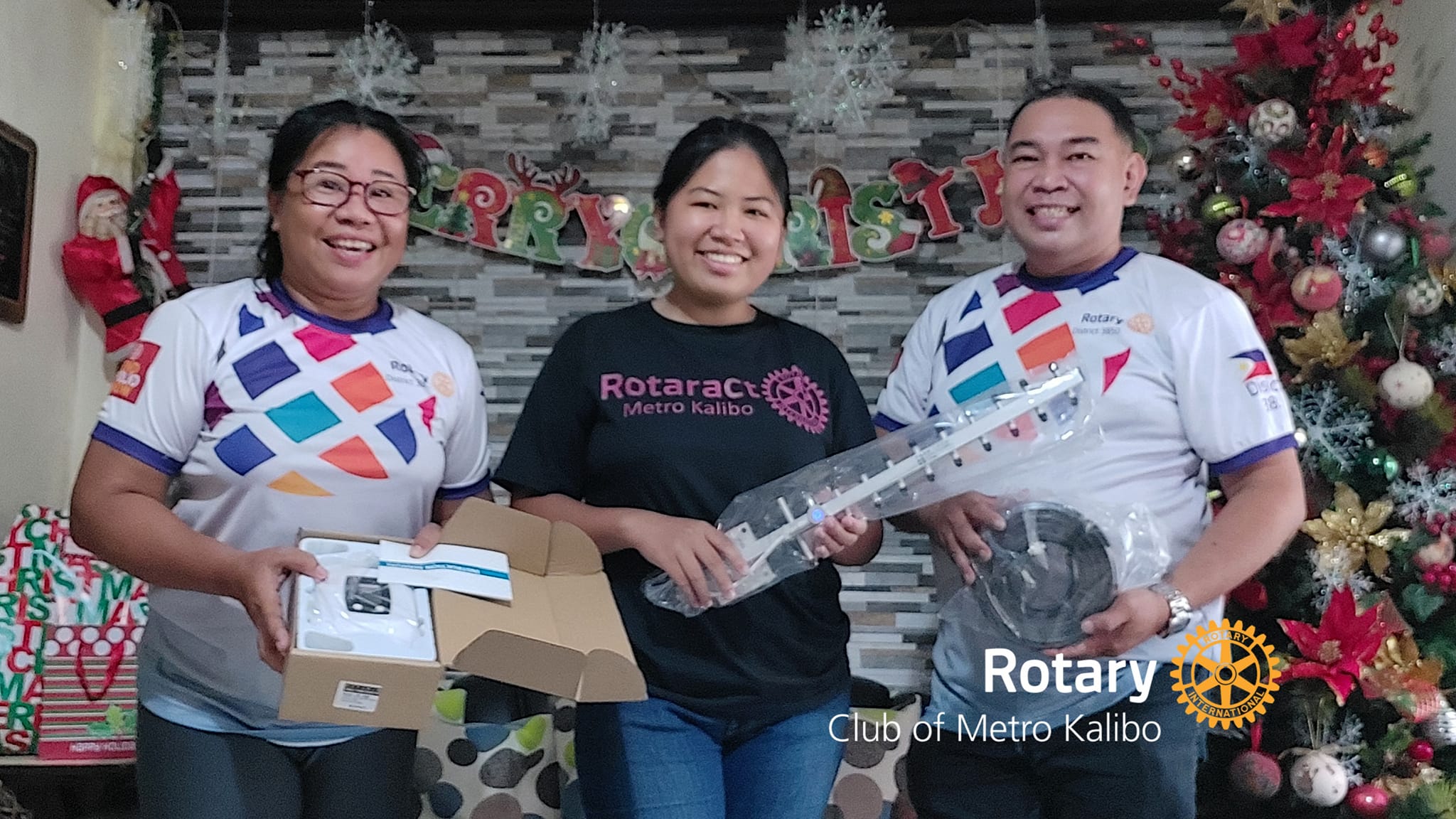
High Levels of Human Capital
In 2012, Patricia Shafer completed her Rotary Peace Fellowship (RPF) at Chulalongkorn University in Thailand with action research on peacebuilding through education. With the help of fellow Carla Lineback, she designed peace training for students that would begin in the US and be adapted around the globe. This idea was tested in 2013 and evolved into NewGen Peacebuilders (NGP) which launched in North Carolina in 2014. It has since been shared with middle school, high school and university students in 14 states and 12 countries. In Lebanon, the framework was central to training university students and was followed by Train the Trainer which equipped a subset to deliver mini-workshops referencing IEP’s 8 Pillars of Positive Peace. More than 300 high schools and 7,000 students in the US were the first to experience many of IEP’s tools in the 2021-22 pilot year of an interactive online course called Youth & Peace in Action.
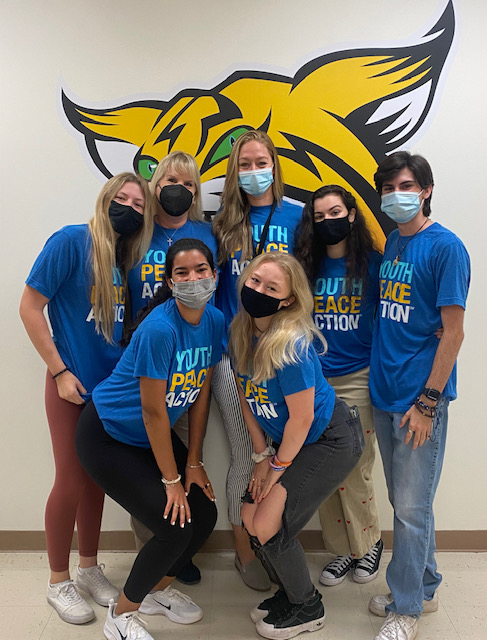
Low Levels of Corruption
For his Peace Project, Sohom Niyogi wrote a report focused on innovative legislation that can be used to curb corruption while boosting the morale of bureaucracy and enforcing a moral code. To develop his hypothetical policy he used India, Somalia and South Sudan as case studies, which determined the gaps in current anti-corruption policies. From this, Sohom argued for the effectiveness of The One Strike Policy. Per his report, Sohom took a zero-tolerance approach and wrote that an official “shall face termination for any given violation of conduct which has affected a member of the public who has sent in the notice by a complaint and statement with possible proof either anonymously or with identity.” In other words, it is a termination mechanism that can relieve the burden on the Anti Corruption Bureau and make reporting easier. Sohom concluded that this mechanism helps attain Positive Peace by curtailing the negative effects of corruption.
IEP Ambassador Program
Created by the Institute for Economics & Peace, the IEP Ambassador program provides an opportunity for individuals – those with extensive experience in peace as well as those who are newer to the field – to gain concrete knowledge and resources to help foster peace in their communities.
Over the course of the IEP Ambassador Program, participants engage in a series of webinars where they are introduced to IEP’s Positive Peace Framework. This framework equips Ambassadors with an awareness of the ways in which local, community-led action can be used to move towards more sustainable, peaceful societies.
If you are interested in learning more about the Ambassador Programme, please see our Ambassador Hub.